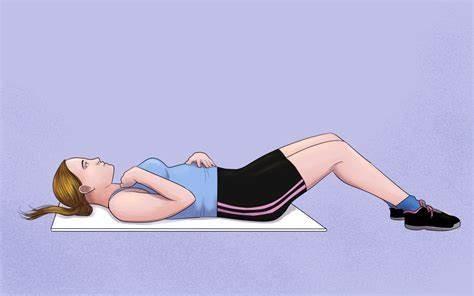The Importance of Breathing Properly
There is no doubt we live in a world that goes faster than our minds and bodies can even handle.
We women, wear many hats (caretakers, moms, professionals) -life can become overwhelming and exhausting. We often put ourselves last with so many demands.
We got it backward. We can be everything to everyone to some extent, but FIRST! We need to take care of ourselves.
Tell me…How do you think you are going to have the energy to play with your kids, and have mental clarity when your life is chaos, and every minute is packed with demands but self-care is not on your list?
I got good news for you! Let me introduce you to breathwork, simple, free yet effective self-care that we can all do.
What is Breathwork?
Breathwork is a general term used to describe any type of therapy that utilizes breathing exercises to improve mental, physical, and spiritual health.
Our breath brings oxygen into our lungs after breathing and then travels throughout our body and reaches every cell in the body. Oxygen is vital for oxidizing food for releasing energy and heat required for daily life tasks.
The human body has natural, built-in self-healing mechanisms and oxygen can help boost those processes.
When we are physically or emotionally stressed or adopt a poor posture for long periods, this definitely affects how we breathe. Our breath tends to become fast and shallow. This limits the oxygen entering our bloodstream. Our brain tells our body that there is a threat, and our body responds in fight or flight. When we take time to slow down and purposefully breathe deeply and slowly, we tell our brain that everything is OK. Our brain communicates to our body that it’s safe to relax. The fight or flight response decreases, and our body can begin to function normally again.
Sometimes we even raise our shoulders to take a breath, using the wrong muscles, therefore, creating tension on our neck and shoulders. I see it every day in my massage practice.
The benefits of breathwork have been long studied:
- Boost immunity
- Prevent burnout
- help manage irritable bowel syndrome.
- Improves sleep
- Increases self-awareness and mental clarity
- Reduce stress, low feelings, and anxiety
- has an anti-inflammatory effect
- Elevates your mood
- Calms your nervous system.
- Releases muscle tension
- Increasing lung capacity
What are some breathwork techniques you can use to get the above benefits?
Diaphragmatic breathing
- Lie on your back on a flat surface with your knees bent.
- Place one hand on your upper chest and the other on your belly, just below your rib cage.
- Breathe in slowly through your nose, letting the air in deeply, towards your lower belly. The hand on your chest should remain still, while the one on your belly should rise.
- Tighten your abdominal muscles and let them fall inward as you exhale through pursed lips (4 seconds). The hand on your belly should move down to its original position.

4-7-8 breathing
This technique was developed by Dr. Andrew Weil.
- Let your lips part slightly. Make a whooshing sound, exhaling completely through your mouth.
- Close your lips and inhale silently through your nose as you count to four in your head, filling the lungs without strain.
- Hold your breath for 7 seconds.
- Make another whooshing exhale from your mouth for 8 seconds.
- Repeat for five to 10 rounds.
Square breathing
- Sit or stand upright.
- Slowly exhale through your mouth, getting all the oxygen out of your lungs.
- Inhale as you count slowly to four in your head, filling it without strain.
- Hold your breath while counting slowly to four.
- Exhale and release the breath slowly to the count of four.
- Hold your breath out for the count of four.
- Repeat the cycle five to ten times.
Tips to get started and to keep going
- Do your exercises in the same place every day. Somewhere that’s peaceful and quiet.
- Don’t worry if you’re not doing it right or enough. We are not looking for perfection here. This may just cause additional stress.
- Clear your mind of things that are stressing you out. Focus instead on the sounds and rhythm of your breathing or the environment around you.
- Do breathing exercises at least once or twice daily. Try to do them at the same time each day to reinforce the habit.
- Do these exercises for about 10–20 minutes at a time.
Don’t let pain or stress overtake your life. Slow down and breathe intentionally. You are alive, aren’t you?
Learn to pause and become aware of the sources of the stressors in your life, and give these exercises a try. Breathwork can be pivotal to prevent stress from accumulating and turning into burnout.
I know we have lots to manage and balance, but learning to take care of yourself must always be a priority. Don’t you agree? Now you have a good start on how to make that happen!
Let’s breathe…and let me know how is this working for you.
P.S Do you want to learn how to recover from burnout? here is a free guide for you.
Disclaimer: This document is for informational purposes only, and should not be considered a substitute for medical advice, diagnosis, or treatment. Always seek the advice of a physician or other qualified health provider with any questions you may have regarding a medical condition. Never disregard professional medical advice or delay in seeking it because of something you have read online.


